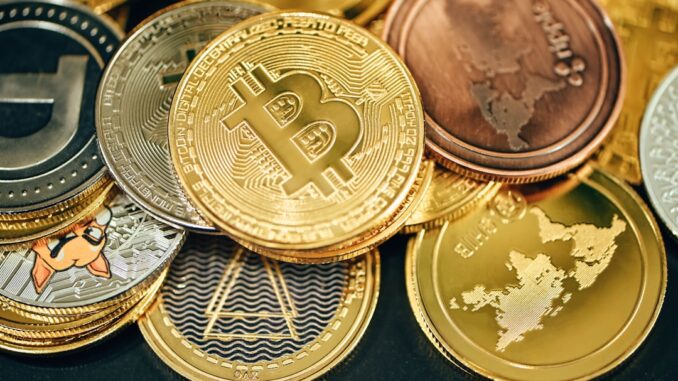
In a decisive move, the Bank of Korea (BOK) has firmly rejected the inclusion of Bitcoin in its foreign exchange reserves, emphasizing the cryptocurrency’s significant volatility and associated liquidity challenges. This stance underscores the central bank’s commitment to financial stability and adherence to international standards.
Volatility Concerns and IMF Standards
The BOK’s decision stems from Bitcoin’s notorious price fluctuations, which can lead to substantial transaction costs during periods of market instability. For instance, Bitcoin’s price has experienced swings between $98,000 and $76,000, settling around $83,000—a 15% decline since mid-February. Such volatility poses risks to the stability of national reserves, which require assets that are both liquid and stable.
Furthermore, the International Monetary Fund (IMF) sets specific criteria for reserve assets, including liquidity, marketability, and investment-grade credit ratings. Bitcoin does not meet these requirements, as it lacks widespread acceptance and is not denominated in a widely used currency. The BOK has stated that it “has neither discussed nor reviewed the possible inclusion of Bitcoin in foreign exchange reserves,” highlighting its cautious approach to integrating digital assets into the nation’s financial framework.
Investor Identification, Introduction, and negotiation.
Global Perspectives on Bitcoin Reserves
South Korea’s decision aligns with the cautious stance of other major financial institutions. The European Central Bank and the Swiss National Bank have also expressed reservations about incorporating Bitcoin into their reserves, citing similar concerns over volatility and liquidity. This global consensus reflects a broader skepticism regarding the suitability of cryptocurrencies as reserve assets.
In contrast, some countries are exploring the potential of Bitcoin as a reserve asset. The Czech Republic, for example, has considered allocating a portion of its reserves to Bitcoin, aiming to diversify its holdings and reduce reliance on traditional currencies. However, such initiatives remain exceptions rather than the rule, with most central banks prioritizing stability and adherence to established financial standards.
South Korea’s Digital Currency Initiatives
While the BOK remains cautious about Bitcoin, South Korea is actively exploring other digital currency initiatives. The central bank has been testing a Central Bank Digital Currency (CBDC) since April 2020, with the first phase completed in December 2021 and the second phase in June 2022. These efforts aim to modernize the payment system and enhance financial inclusion, reflecting a balanced approach to digital innovation.
In April 2024, the BOK joined ‘Project Agorá,’ led by the Bank for International Settlements (BIS), alongside six other central banks. This project seeks to tokenize cross-border payments by developing a unified, programmable infrastructure, indicating South Korea’s commitment to advancing digital currency initiatives within a controlled and stable framework.
Conclusion
The Bank of Korea’s decision to exclude Bitcoin from its foreign exchange reserves highlights the central bank’s prioritization of financial stability and adherence to international standards. While the global financial landscape continues to evolve with the rise of digital assets, South Korea’s cautious approach reflects a broader trend among central banks to carefully evaluate the integration of cryptocurrencies into national financial strategies.
References
-
Bank of Korea to take ‘cautious approach’ to Bitcoin reserve. Cointelegraph. March 17, 2025. (cointelegraph.com)
-
South Korea’s Central Bank Declines Proposal for Bitcoin Reserve. Bankless Times. March 17, 2025. (banklesstimes.com)
-
Bank of Korea Rejects Bitcoin Over Volatility Risks. Watcher Guru. March 19, 2025. (watcher.guru)
-
South Korea’s central bank rules out bitcoin reserve possibility: report. The Block. March 16, 2025. (theblock.co)
-
Bank of Korea Rules Out Bitcoin as a Strategic Reserve Asset. ETHNews. March 17, 2025. (ethnews.com)
-
Reasons Why Bank of Korea Dismissed Plans for Strategic Bitcoin Reserve. Tekedia. March 17, 2025. (tekedia.com)
-
South Korea’s Central Bank Rejects Strategic Bitcoin Reserve Amid Political Crypto Push. Medium. March 2025. (solanaseahorse.medium.com)
-
Bitcoin Reserve? South Korea joins Japan, Switzerland in… AMBCrypto. March 17, 2025. (ambcrypto.com)
-
Bank of Korea Rejects Bitcoin for Foreign Exchange Reserves. The Crypto Times. March 17, 2025. (cryptotimes.io)
-
Bank of Korea (BOK) Rejects Bitcoin Reserve Due to Price Volatility. Cointab. March 17, 2025. (cointab.com)
-
Bank of Korea rejects BTC reserve, announces CBDC tests. CoinGeek. March 17, 2025. (coingeek.com)
-
South Korea’s Central Bank rules out bitcoin as reserve asset amid volatility concerns. Techpression. March 17, 2025. (techpression.com)
-
Strategic bitcoin reserve (United States). Wikipedia. July 2025. (en.wikipedia.org)


Be the first to comment